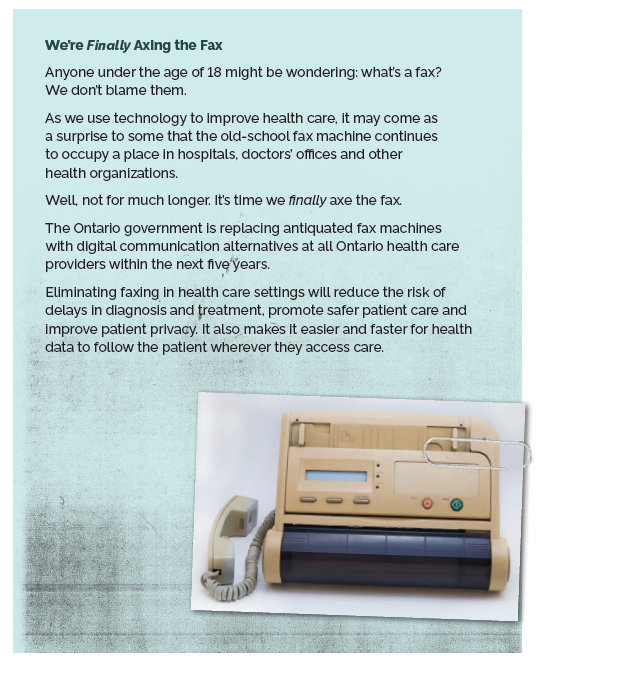Ontario pharmacies have five years to stop using faxes because of patient privacy concerns
The new Ontario Health Plan "Your Health: A Plan for Connected and Convenient Care" has identified replacing fax machines with digital communication alternatives at all Ontario health care providers within the next five years.
You can read an article about in the CBC titled Why doctors still use faxes, and why Ontario aims to phase them out of health care or download a PDF version of the plan here.
In today's digital age, it may seem surprising that Canadian pharmacies still rely on fax machines to send sensitive patient information, including prescription orders and personal health information. However, this outdated technology presents significant risks to patient privacy and security. It is time for Canadian pharmacies to transition away from fax machines and towards more secure and modern methods of communication.

One of the main reasons why fax machines pose a risk to patient privacy is that they are not secure. Fax machines are susceptible to hacking, eavesdropping, and other forms of unauthorized access. This means that confidential patient information, including medical history, medication orders, and personal identification information, can be intercepted and viewed by unauthorized individuals. This is a serious concern for patients, as it can lead to identity theft, insurance fraud, and other forms of financial abuse.
Another issue with fax machines is that they are often unreliable. Faxes can be lost, delayed, or never received at all, leading to potential medication errors or other adverse outcomes for patients. This can result in serious harm to patients, including dangerous drug interactions, allergic reactions, and other adverse health effects.
In addition to the privacy and security risks, fax machines are also slow and inefficient. Fax machines require a physical connection to the machine, and the sending and receiving of faxes can be slow and time-consuming. This can result in significant delays in the provision of patient care, especially in emergency situations.
To address these concerns, Canadian pharmacies should transition away from fax machines and towards more secure and modern methods of communication. There are several alternatives available, including secure email, encrypted file sharing, and online prescription portals. These methods are not only more secure, but also faster and more efficient, allowing for quicker and more accurate communication between pharmacists and healthcare providers.
The continued use of fax machines by Canadian pharmacies presents significant risks to patient privacy and security. It is time for Canadian pharmacies to transition away from this outdated technology and towards more secure and modern methods of communication. By doing so, they can help to protect patient privacy, reduce the risk of medication errors, and improve the efficiency and quality of patient care.

